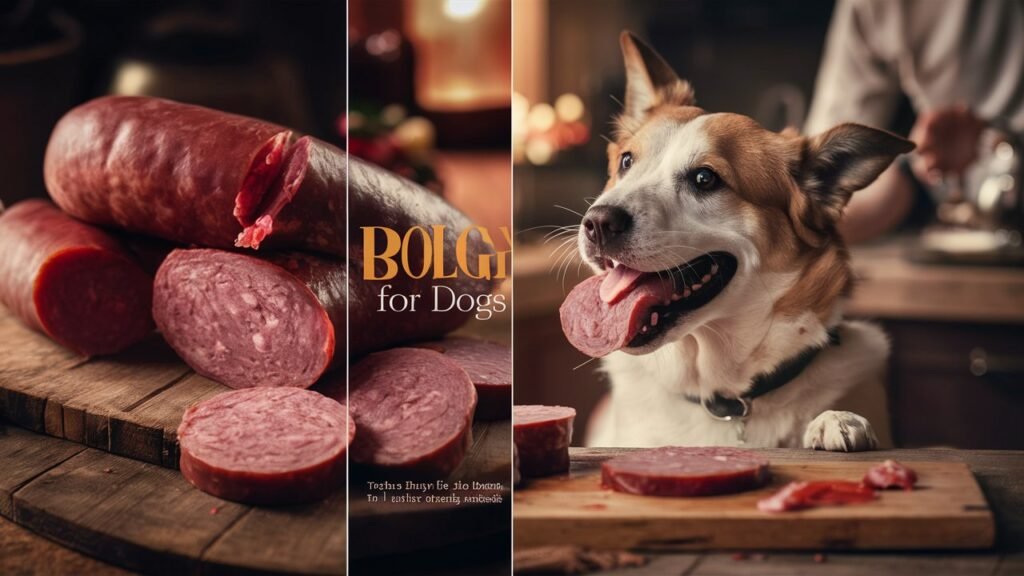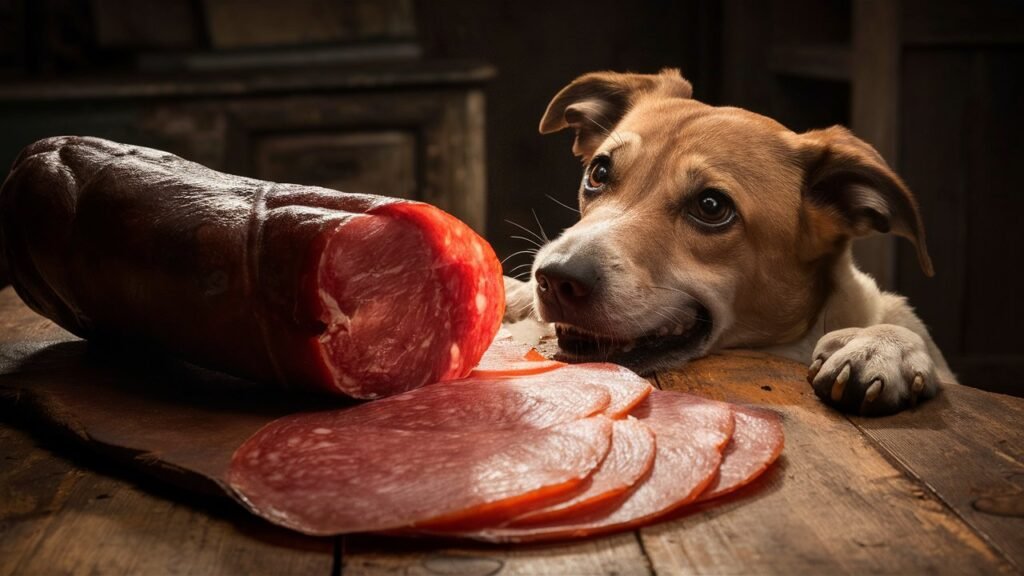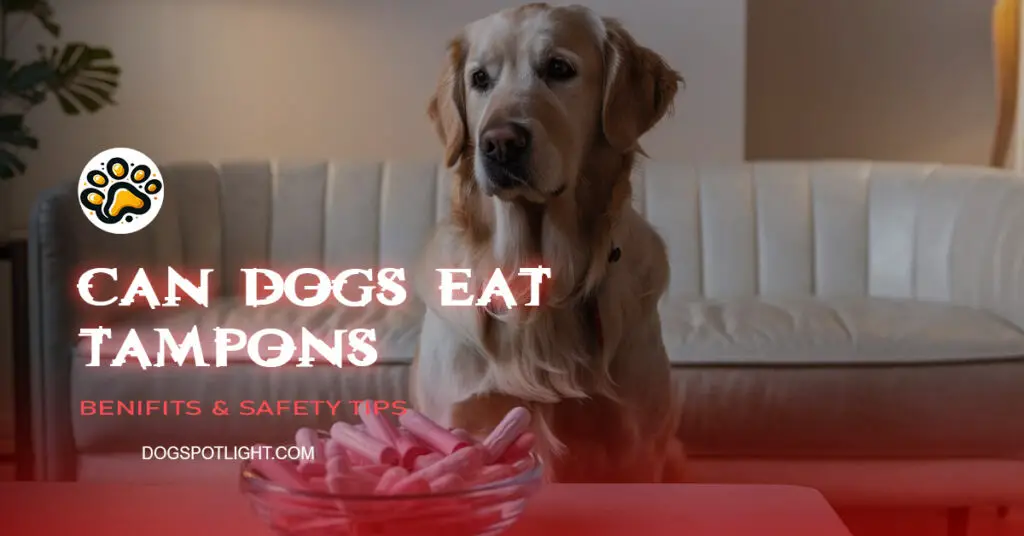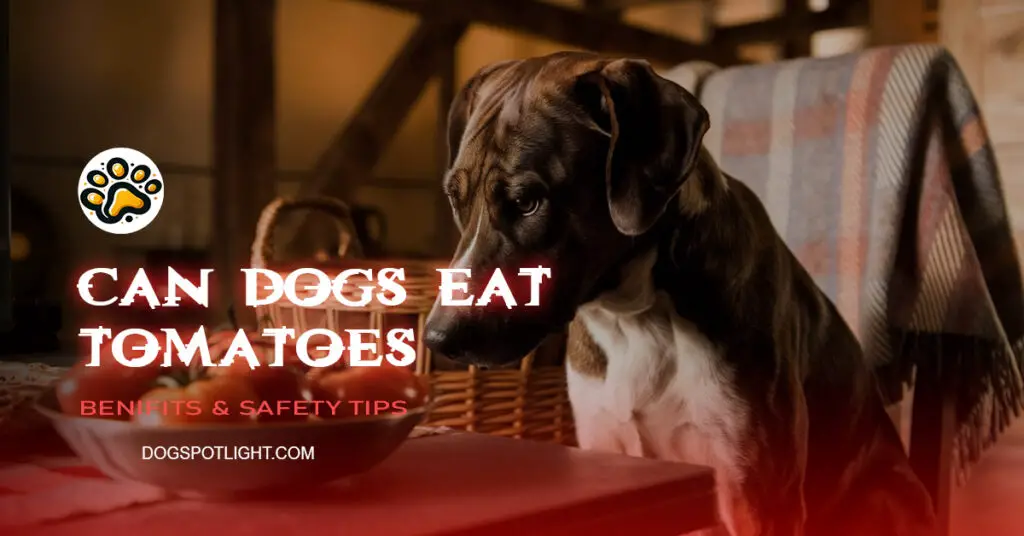Introduction
Bologna is a popular deli meat enjoyed by many people, but when it comes to feeding it to dogs, there are several things pet owners need to consider. Can dogs eat bologna? While it may seem harmless to give your dog a bite of this processed meat, there are significant health risks that could arise. In this article, we will dive into the ingredients in bologna, whether it is good or bad for dogs, and provide safe alternatives to bologna that your furry friend will love.
Can Dogs Eat Bologna?
Yes, dogs can eat bologna, but it’s not recommended due to its high fat, sodium, and preservatives, which can be harmful to their health. It’s best to give healthier, dog-safe alternatives.
- Introduction
- What is Bologna?
- Ingredients in Bologna
- Can Dogs Eat Bologna?
- Is Bologna Good for Dogs?
- Is Bologna Bad for Dogs?
- Is Bologna Safe for Dogs?
- Nutritionl Value of Bologna
- Benefits of Bologna for Dogs
- Risks of Bologna for Dogs
- Alternatives to Bologna for Dogs
- Can Dogs Eat Bologna Meat?
- Can Dogs Eat Bologna and Cheese?
- Can Dogs Eat Bologna and Hot Dogs?
- Can Dogs Eat Bologna Raw?
- Can Dogs Eat Bologna Casing?
- How to Safely Feed Bologna to Dogs
- What Should I Do If My Dog Eats Bologna?
- Pros and Cons
What is Bologna?
Bologna, a type of sausage derived from the Italian city of Bologna, is a processed meat made from a combination of meats like pork, beef, or chicken. It is flavored with spices and salt and sometimes contains preservatives, nitrates, and additives. While it is a staple in sandwiches and snacks for humans, its processed nature and high-fat content raise concerns when feeding it to pets.
Ingredients in Bologna
- Meats: Typically includes pork, beef, or poultry.
- Spices and Seasonings: Pepper, coriander, myrtle berries, and nutmeg.
- Preservatives: Sodium nitrate and other preservatives to extend shelf life.
- Fats: High-fat content, usually 20-30% of the meat composition.
- Salt: Excessive salt levels, often above what is healthy for dogs.
- Fillers and Additives: May include corn syrup or sugar.
Can Dogs Eat Bologna?
Yes, dogs can eat bologna, but it is not recommended due to its unhealthy components. A small piece of bologna may not immediately harm your dog, but frequent consumption or large amounts can lead to serious health problems. Bologna is processed, contains high levels of fat, sodium, and preservatives, which are not suitable for a dog’s diet.

Is Bologna Good for Dogs?
Bologna provides very little nutritional benefit for dogs. While it does contain protein, it is also loaded with unhealthy fats, salts, and preservatives that are harmful in large quantities. Dogs require a well-balanced diet, and bologna does not offer the essential nutrients they need for a healthy life.
Is Bologna Bad for Dogs?
Yes, in most cases, bologna is bad for dogs. Its high salt and fat content can lead to health issues like obesity, pancreatitis, and heart disease. The preservatives used, like nitrates, can also be harmful to dogs over time. Regular consumption of bologna can lead to long-term health risks.
Is Bologna Safe for Dogs?
Feeding bologna to dogs is not considered safe, especially in large quantities or as a regular part of their diet. Occasional, small portions may not cause immediate harm, but the risks outweigh any potential benefits. It’s essential to prioritize your dog’s health by feeding them food specifically formulated for their dietary needs.
Nutritionl Value of Bologna
| Nutrient | Amount (per 100g serving) | % Daily Value (DV) for Dogs |
| Energy | 320-350 kcal | 20-25% |
| Protein | 15-20g | 25-35% |
| Fat | 25-30g | 35-45% |
| Carbohydrates | 5-10g | 5-10% |
| Fiber | 0-1g | 0-5% |
| Vitamin A | 5-10% DV | 2.5-5% |
| Vitamin C | 10-20% DV | 5-10% |
| Calcium | 2-4% DV | 2-4% |
| Phosphorus | 10-15% DV | 10-15% |
| Sodium | 40-60% DV | 40-60% |
Benefits of Bologna for Dogs
While there are not many direct health benefits, if given sparingly, bologna can:
- Provide a source of protein (though better alternatives exist).
- Be a high-reward treat: In small doses, it can be used as a special, high-value reward during training.
However, these benefits come with significant risks that must be carefully considered.

Risks of Bologna for Dogs
- High Sodium Content: Excess salt can lead to dehydration, sodium poisoning, or increased risk of kidney disease.
- High Fat Content: Can lead to obesity and pancreatitis.
- Preservatives and Additives: Nitrates and other preservatives in processed meats are potentially carcinogenic.
- Risk of Allergic Reactions: Some dogs may be sensitive or allergic to certain ingredients in processed meats.
- Digestive Issues: The high fat and spice levels can cause diarrhea, vomiting, or stomach pain.
Alternatives to Bologna for Dogs
If you’re looking for safer options to treat your dog, consider the following alternatives:
- Plain, Cooked Chicken: Lean protein without seasoning is a great alternative.
- Turkey Slices: Opt for low-sodium, preservative-free turkey meat.
- Carrots and Cucumbers: Great low-calorie snacks that dogs enjoy.
- Commercial Dog Treats: There are many healthy, dog-friendly snacks available in stores that are specifically formulated for canine nutrition.
Can Dogs Eat Bologna Meat?
Dogs can eat bologna meat, but it is not ideal due to the reasons mentioned earlier. It’s best to offer them healthier, low-sodium, and unprocessed meats instead.
Can Dogs Eat Bologna and Cheese?
Dogs can eat small amounts of bologna and cheese, but both are high in fat and can cause digestive upset. Cheese, in particular, should be given in moderation, especially to lactose-intolerant dogs.
Can Dogs Eat Bologna and Hot Dogs?
Both bologna and hot dogs are processed meats that contain high levels of sodium, preservatives, and fats. It is not recommended to feed these to dogs regularly, as they can cause health issues.
Can Dogs Eat Bologna Raw?
Feeding raw bologna to dogs is not advisable. Raw processed meats may contain harmful bacteria or parasites that can pose serious health risks to your dog.

Can Dogs Eat Bologna Casing?
Most bologna casings are made of either natural animal intestines or synthetic materials. While natural casings may be digestible, synthetic casings could cause blockages in your dog’s digestive system. It’s best to avoid giving your dog bologna casing altogether.
How to Safely Feed Bologna to Dogs
If you absolutely must give your dog bologna, follow these safety tips:
- Limit the Portion: Only give very small amounts.
- Check the Ingredients: Ensure there are no harmful additives like garlic or onion powder.
- Monitor Your Dog: Watch for any adverse reactions, such as vomiting or diarrhea.
- Make It an Occasional Treat: Bologna should never become a regular part of your dog’s diet.
What Should I Do If My Dog Eats Bologna?
If your dog eats a small amount of bologna, they are likely to be fine, but you should:
- Monitor for Symptoms: Watch for signs of vomiting, diarrhea, or lethargy.
- Provide Water: The high salt content may make your dog thirsty.
- Consult Your Vet: If your dog shows any severe symptoms, contact your veterinarian immediately.
Pros and Cons
Pros
Cons
While it might be tempting to share your bologna sandwich with your dog, it’s important to remember that bologna is not a healthy option for your pet. The high-fat, high-sodium content, along with preservatives, can lead to serious health risks. Instead, opt for healthier alternatives like lean meats or specially formulated dog treats to ensure your dog stays happy and healthy.





